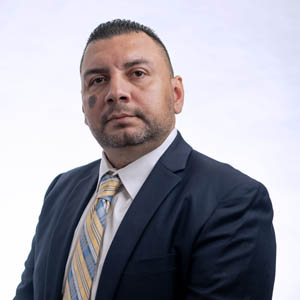Anti-capitalist rhetoric poses risk to Puerto Rico growth

The recent Jubilee debate featuring entrepreneur Patrick Bet-David against 20 democratic socialists highlights a growing skepticism of capitalism and a preference for redistribution among youth.
While the debate took place in the U.S., its ideas are increasingly shaping Puerto Rico’s cultural and economic discourse, posing potential risks to the island’s business environment.
In the debate, participants framed capitalism as inherently exploitative, wealth as unfairly concentrated and government intervention as the only path to fairness. These narratives, shaped by academic and social trends, risk reinforcing dependency in Puerto Rico — a territory already reliant on federal transfers and constrained by inefficiency.
Anti-capitalist messaging is also appearing in local campaigns. Recent real estate advertising framed outside investment as a threat to Puerto Ricans’ opportunities. This approach, while emotionally resonant, creates a double standard: foreign investors are demonized, while Puerto Rican investors leveraging the same incentives are celebrated.
Such framing, rooted more in identity than economics, risks discouraging the very capital inflows needed for job creation, neighborhood revitalization and economic growth.
Journalism and social media have amplified similar narratives. Viral content often depicts property acquisition as displacement or highlights squatter movements as a form of justice.
While the free press rightly reflects different viewpoints, framing these actions solely through a lens of victimization overlooks the economic reality: abandoned properties and rising demand represent opportunities to restore communities, generate revenue and strengthen the tax base.
Cultural pride is also increasingly tied to protectionist or socialist ideals. Linking heritage to restrictive economic models may resonate emotionally but risks discouraging entrepreneurship and investment — tools that have historically safeguarded identity while enabling prosperity. Influential voices framing economic challenges as existential threats to culture may unintentionally harden anti-business sentiment at a critical time for recovery.
The economic implications are significant. Victim-centered narratives signal hostility to capital, deterring investors needed to rebuild infrastructure and create sustainable employment. They also risk misrepresenting Puerto Ricans themselves — who are overwhelmingly entrepreneurial, hardworking and resourceful — as passive bystanders in their own economy.
Puerto Rico’s history shows a different reality. Trade, ownership and enterprise have long been pillars of resilience. While capitalism is imperfect, it remains the most effective system for creating opportunity, innovation and long-term growth. The challenge today lies not in abandoning this foundation but in strengthening it against competing narratives.
Business leaders, educators and policymakers can play a vital role by fostering an environment that values responsible investment, encourages entrepreneurship and ensures growth opportunities are accessible to all residents. Constructive engagement with these emerging ideological trends is essential — not to silence them, but to provide a clear, fact-based vision for sustainable prosperity.
Puerto Rico’s future competitiveness depends on maintaining an open, investment-friendly climate. Subtle shifts in cultural narratives today can shape economic confidence tomorrow. Ensuring that opportunity, not dependency, remains at the center of public discourse is both urgent and necessary for long-term growth.

Antonio Santos has more than 30 years of experience in hospitality, service and tourism. In 2024, he ran for the Puerto Rico House of Representatives, representing District 1 in San Juan with the Proyecto Dignidad party. He advocates for entrepreneurship and limited government, promoting economic development rooted in independence and opportunity.





Angel, as a Christian, are you saying that you favor capitalism that is exploitative, wealth that is unfairly concentrated in a very small number of persons and families? Puerto Rico has one of the highest rates of income inequality in the hemisphere. Are you against government intervention as the only path to fairness? The point of your article is not clear since you don’t offer an altrernative to inequality other than pious platitudes about business people and investors being nice and ethical – which they generally won’t be without the added incentive of government oversight and regulation.
https://newsismybusiness.com/acho-el-capitalismo-es-otra-cosa/